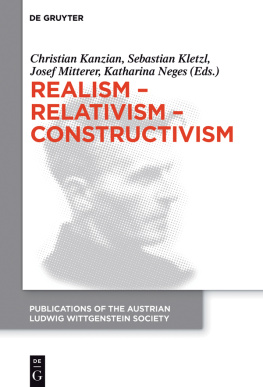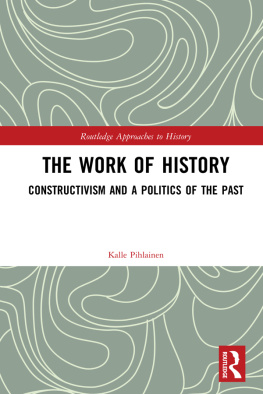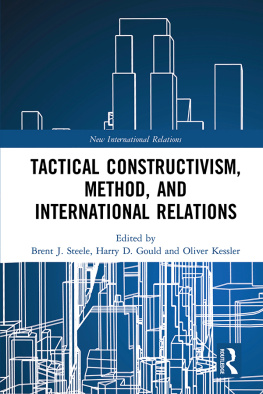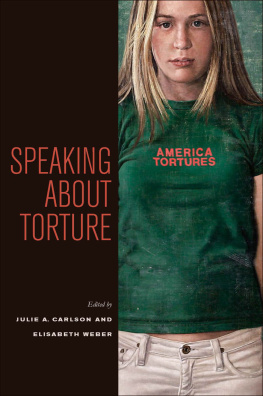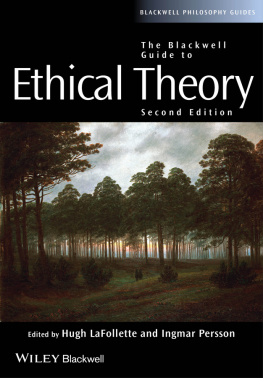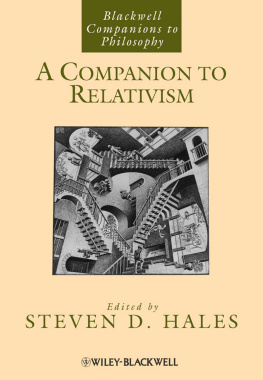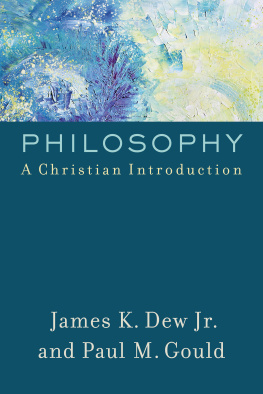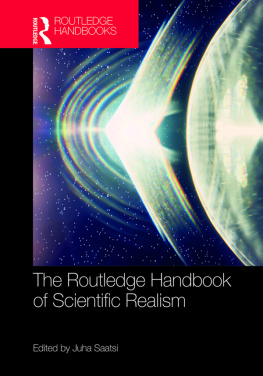Christian Kanzian - Realism - Relativism - Constructivism
Here you can read online Christian Kanzian - Realism - Relativism - Constructivism full text of the book (entire story) in english for free. Download pdf and epub, get meaning, cover and reviews about this ebook. year: 2017, publisher: De Gruyter, genre: Religion. Description of the work, (preface) as well as reviews are available. Best literature library LitArk.com created for fans of good reading and offers a wide selection of genres:
Romance novel
Science fiction
Adventure
Detective
Science
History
Home and family
Prose
Art
Politics
Computer
Non-fiction
Religion
Business
Children
Humor
Choose a favorite category and find really read worthwhile books. Enjoy immersion in the world of imagination, feel the emotions of the characters or learn something new for yourself, make an fascinating discovery.
- Book:Realism - Relativism - Constructivism
- Author:
- Publisher:De Gruyter
- Genre:
- Year:2017
- Rating:4 / 5
- Favourites:Add to favourites
- Your mark:
- 80
- 1
- 2
- 3
- 4
- 5
Realism - Relativism - Constructivism: summary, description and annotation
We offer to read an annotation, description, summary or preface (depends on what the author of the book "Realism - Relativism - Constructivism" wrote himself). If you haven't found the necessary information about the book — write in the comments, we will try to find it.
Realism - Relativism - Constructivism — read online for free the complete book (whole text) full work
Below is the text of the book, divided by pages. System saving the place of the last page read, allows you to conveniently read the book "Realism - Relativism - Constructivism" online for free, without having to search again every time where you left off. Put a bookmark, and you can go to the page where you finished reading at any time.
Font size:
Interval:
Bookmark:

Realism Relativism Constructivism

Volume 24
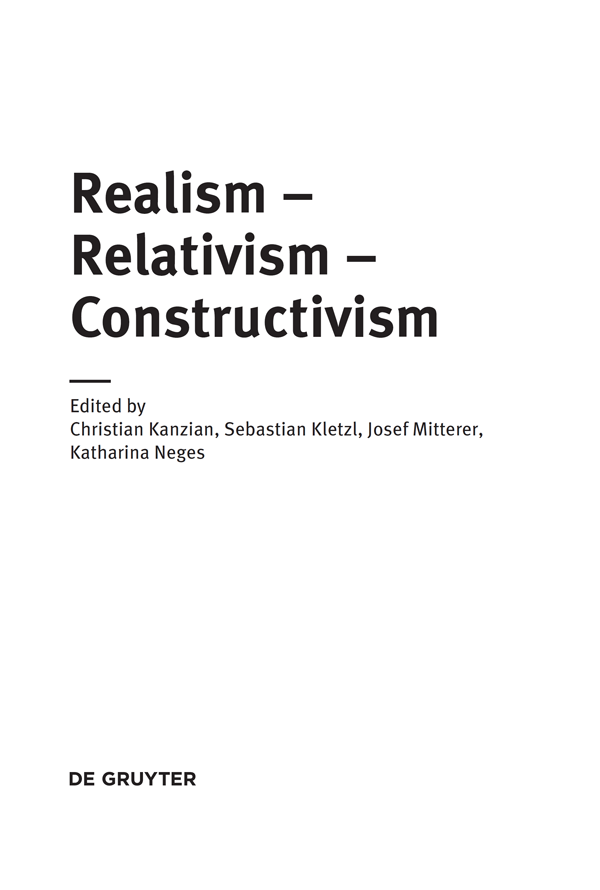
ISBN 978-3-11-046773-4
e-ISBN (PDF) 978-3-11-052405-5
e-ISBN (EPUB) 978-3-11-052342-3
ISSN 2191-8449
Library of Congress Cataloging-in-Publication Data
A CIP catalog record for this book has been applied for at the Library of Congress.
Bibliographic information published by the Deutsche Nationalbibliothek
The Deutsche Nationalbibliothek lists this publication in the Deutsche Nationalbibliografie; detailed bibliographic data are available in the Internet at http://dnb.dnb.de.
2017 Walter de Gruyter GmbH, Berlin/Boston
www.degruyter.com
Philosophical ideas can change the way we perceive and experience our world and lead our lives. This is not only correct for philosophers but in a more indirect way also for people far away from philosophical seminars. Opinions and arguments that originated in philosophy ooze into common sense and change its direction and our understanding of the world we live in. Three important, spacious and far-reaching clusters of philosophical ideas that influenced for a long time how we describe different aspects of our world were the topic of the International Ludwig Wittgenstein Symposium in Kirchberg 2015 realism, relativism, and constructivism.
To be sure all three are diffuse and heavily loaded concepts and in such cases we as Wittgenstein put it struggle with language. If one asks two philosophers what realism is, one ends up with (at least) a dozen definitions, and of course, the same can be said concerning relativism and constructivism. This confusing situation is the reason why the central concern of many of our contributions is to provide a clear and distinct definition of one or more of those concepts.
This seems to be of utmost importance concerning relativism since the self-refutation argument lurks in the background of almost every discussion. Simply put it says that a position which is seriously relativistic is either an absolutist view in disguise because it assumes its relativistic thesis to be universally true, or it is itself only true relative to something else which makes it powerless and irrelevant. Constructivism, it is often argued, falls prey to a very similar problem. Constructivists replace the realist concept of truth with that of viability or a similar concept. But why, one could asked, is a way of describing the world viable and another is not? It seems that in the end the world singles out some ways of coping as successful but this is simply a form of realism. Realism on the other hand is often deemed to be useless by critics because we can never silence our doubts if we have already arrived at a correct description of the world, a doubt which is fuelled by a history of failed attempts to find out about the real inventory of the world. Therefore many discussions in this volume try to provide a remedy to such fundamental problems, for example by showing that realism is a reasonable position to take or that relativism, correctly understood, is not in any meaningful sense self-refuting.
Other contributions are an attempt to apply fundamental convictions concerning realism, relativism and constructivism to concrete cases and examples. Especially in such discussions it is important to be clear about the extension of the concepts involved. Realism, relativism and constructivism can be explicitly found as designators of distinct positions in ethics, epistemology, philosophy of mind, ontology, and philosophy of science. Moreover the use of these concepts is not limited to philosophy but they are also employed and discussed in social and natural sciences, for example, geology, history, and literature. It is important to keep in mind that in different fields those concepts might (and they usually do) describe different positions and connections. The structure of this volume attempts to make explicit some basic distinctions and to provide at least a broad scheme in which different positions and fine grained nuances are located.
On a final note we can happily say that suitable for a conference in Kirchberg most contributions in this volume are written in what can be called a Wittgensteinian spirit. Wittgenstein himself was a tireless and intellectually honest thinker. He took philosophical arguments serious and did not hastily abort discussion but examined them again and again from different perspectives. This is also the guiding spirit of the contributions of this to volume. All participants are concerned with a collective philosophical endeavour, with a respectful exchange of thoughts, ideas and arguments and, of course, their critical examination. Regardless of disagreements, at the end of the day everyone feels that it is important to get a clearer grip of realism, relativism or constructivism aiming at a better understanding of phrases like constructing reality, really existing, matter of fact, or relatively true.
The crucial outcome of the IWS 2015 is not that we finally know that there is a real world independent of us or that relativism in ethics is after all a rational position, but rather that the discussion between realists, relativists, and constructivists is an ongoing, interesting and philosophically significant enterprise. Wittgensteins greeting Take your time! may well be good advice.
The editors want to thank the Government of Lower Austria and the board of the Austrian Ludwig Wittgenstein Society for the support of our conference, and De Gryuter for the friendly and professional cooperation.
The editors

Krzysztof Abriszewski
Abstract : In my article, I propose to discuss constructivism and realism in terms of actions instead of doing that in a usual way, in terms of theories, philosophers or general positions. To enable this, I offer two conceptual tools. First, I use modified model of four types of knowledge introduced by Andrzej Zybertowicz. It approaches any knowledge-building process as a cultural game, and recognizes reproduction, discovery, redefinition, and design of a new game. Second, I use Stanisaw Lems model of three types of geniuses. I illustrate my approach briefly using examples from Plato, Spinoza and Berkeley.
Keywords : Constructivism, realism, cultural theory, actions, knowledge
This apparently innocent question seems to be out of place when asked in presence of philosophers. Almost surely they will not recognise it as addressed to them. And when that is determined, they will inevitably shake off any responsibility. In other words, it is always others (Others) who construct, and never we. We will never admit: Yes, constructing X is what we excel at. At best, we will offer constructing this or that reasoning on a particular topic. More likely, constructing will appear in the way of reproach: construct this or that that is what a realist may say to a constructivist in fervour of discussion.
While the introductive question is looming in the background, I would like to ponder what philosophers may actually construct or may have constructed in the past. However, in order to take up these considerations, I must make some adjustments to our philosophical ways of speaking about constructing and constructivism. That is, to a certain degree I am going to enter the undefined area of discussion about realism and constructivism, but I would also like to introduce a perspective different from the dominant ones.
Font size:
Interval:
Bookmark:
Similar books «Realism - Relativism - Constructivism»
Look at similar books to Realism - Relativism - Constructivism. We have selected literature similar in name and meaning in the hope of providing readers with more options to find new, interesting, not yet read works.
Discussion, reviews of the book Realism - Relativism - Constructivism and just readers' own opinions. Leave your comments, write what you think about the work, its meaning or the main characters. Specify what exactly you liked and what you didn't like, and why you think so.

